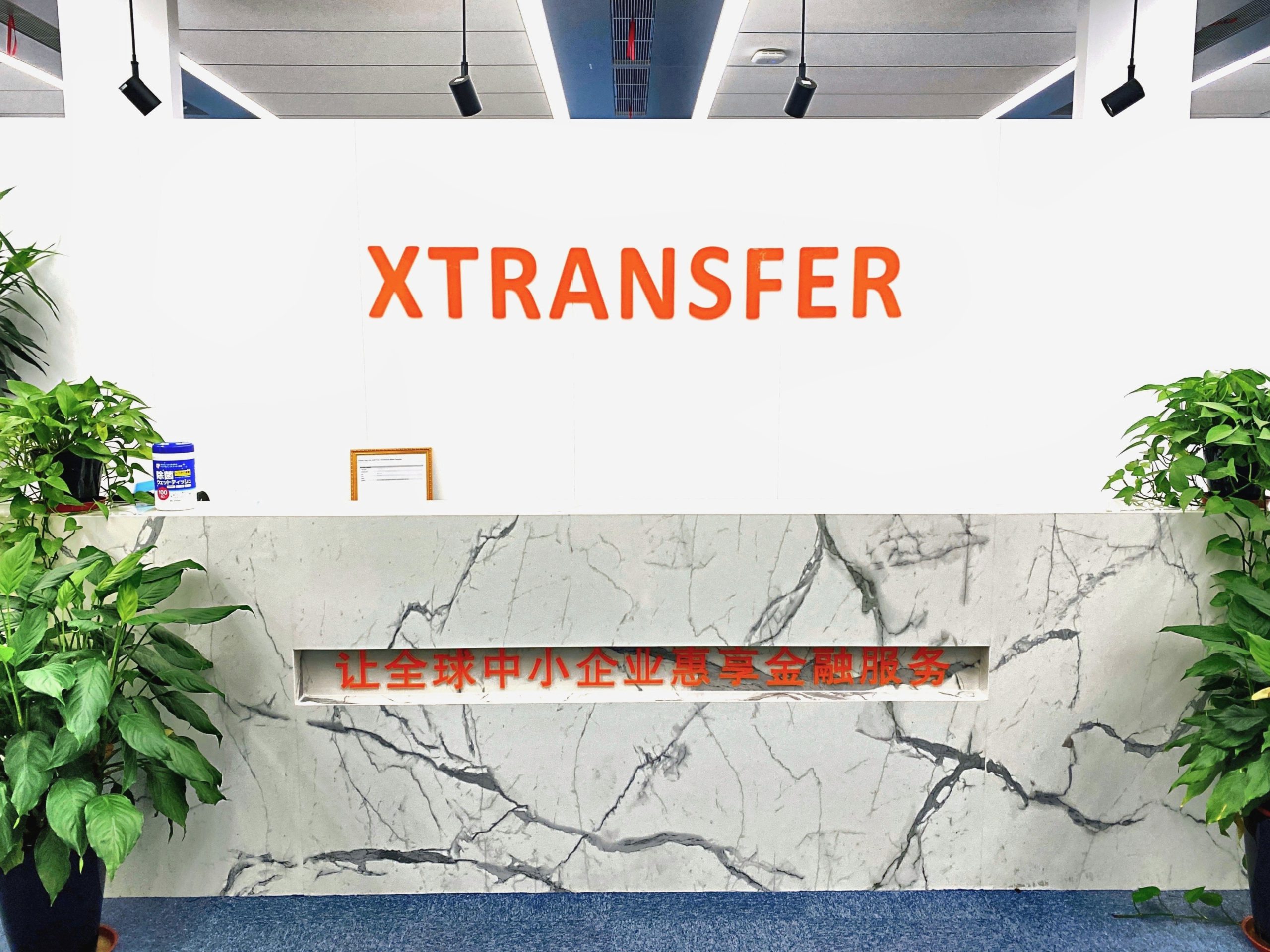Making cross-border money transfers has been a long-lasting headache for importers and exporters due to regulatory hurdles, delays, and troublesome procedures. “While mobile payments have been a norm, the sector of business-to-business payments is still at an early stage,” according to Bill Deng, CEO of Shanghai-based XTransfer.
Deng, together with five former employees at Ant Group, co-founded XTransfer in 2017 to ease up international money transfers. The company focuses on serving Chinese small and medium-sized enterprises (SMEs) and exporters, who need to receive money from overseas buyers but are oftentimes “overcharged and underserved” by banks and traditional financial institutions, Deng told KrASIA.
The startup provides a suite of cross-border payment solutions, risk assessment, and management systems. The company ensures fast and low-fee international transfers for its clients, among other services, said Deng.
“Transactions between businesses have become increasingly fragmented in terms of transaction parties, as more SMEs emerge to play an important role amid the e-commerce boom,” Deng told KrASIA.
XTransfer concluded a C+ Series round in January, securing fresh capital from Lavender Hill Capital Partner, although the size of the round has not been revealed. XTransfer also counts eWTP Capital as an early investor. eWTP Capital is a fund backed by Ant Group and China Merchants Venture, the venture arm of state conglomerate China Merchants Group.

Powering underserved SMEs
Traditionally, international transfers have been costly, time-consuming, and inefficient, making paying and receiving money an issue for enterprises, especially for small merchants who have limited resources and are sensitive to cash flow. Deng said that banks have failed to establish a solution tailored to these clients due to administrative hurdles and concerns about money laundering risks and other financial criminal activities.
To bridge the gap, the XTransfer app allows merchants to set payment collection accounts backed by banks like CitiBank, StanChart, DBS, and the Community Federal Savings Bank. These accounts let merchants collect payments in locations near buyers in “more than 200 countries and regions,” said Deng. Chinese users can then withdraw their money from the app through a multi-currency clearing network.
The service is currently only available to firms and merchants registered on the mainland and Hong Kong, said Deng. The startup serves over 100,000 clients, according to the company.
An intelligent anti-money laundering (AML) risk control infrastructure guarantees the service to be secure and sustainable. The AML system requires users to submit documents such as photocopies of commercial contracts and proforma invoices for each payment to automatically assess the authenticity of every deal. If the system spots a red flag, such as a deal involving goods beyond what the exporter normally trades, it alerts an XTransfer employee to check whether the transaction is legitimate.
“Our background from Alibaba indeed offers a good start, and the credibility of our system, personnel, investors, and a healthy financial performance can cope well with the continuous supervision from banks,” Deng told KrASIA.
XTransfer earns a premium from transfer fees. The platform collects 0.4% for each transfer, which compared to a regular bank rate of between 2% and 3%, it helps customers to save as much as 90%, Deng said.
The company turned profitable last year and reinvested profits to upgrade its technology and service capabilities. In 2020, the company achieved a “near-tenfold annual revenue growth,” said Deng, yet without revealing a detailed figure.

Global inroads
Strong demand for goods produced in China has boosted a high export volume in recent years, while the nation’s early control of the COVID-19 pandemic has helped the Chinese manufacturing sector. Per official government stats, the trade surplus reached USD 3.7 trillion (USD 573 billion) in 2020, the highest amount since 2015.
In the sprawling payment industry, the segment of enterprise third-party payment solutions is estimated to cross RMB 177.2 trillion (USD 27.47 trillion) in 2022, according to consulting firm iResearch.
Domestic service providers such as Alipay, Lianlian Pay, and PingPong, as well as global players like PayPal, which obtained a local payment license after the acquisition of Chinese payment company GoPay in 2019, are all vying for a market slice.
“Within five years, a dominant platform is bound to emerge,” Deng said. The company is working towards improving its risk management system and further integrate financial services like lending, wealth management, and foreign currency exchange.
XTransfer aims to expand its cross-payment services to overseas companies in 2023. The firm has opened an office in Singapore last year to expand its network of financial partners and further prepare to tap the Southeast Asian market.
This article is part of KrASIA’s “Inside China’s Startups” series, where the writers of KrASIA speak with founders of tech companies in the country.

